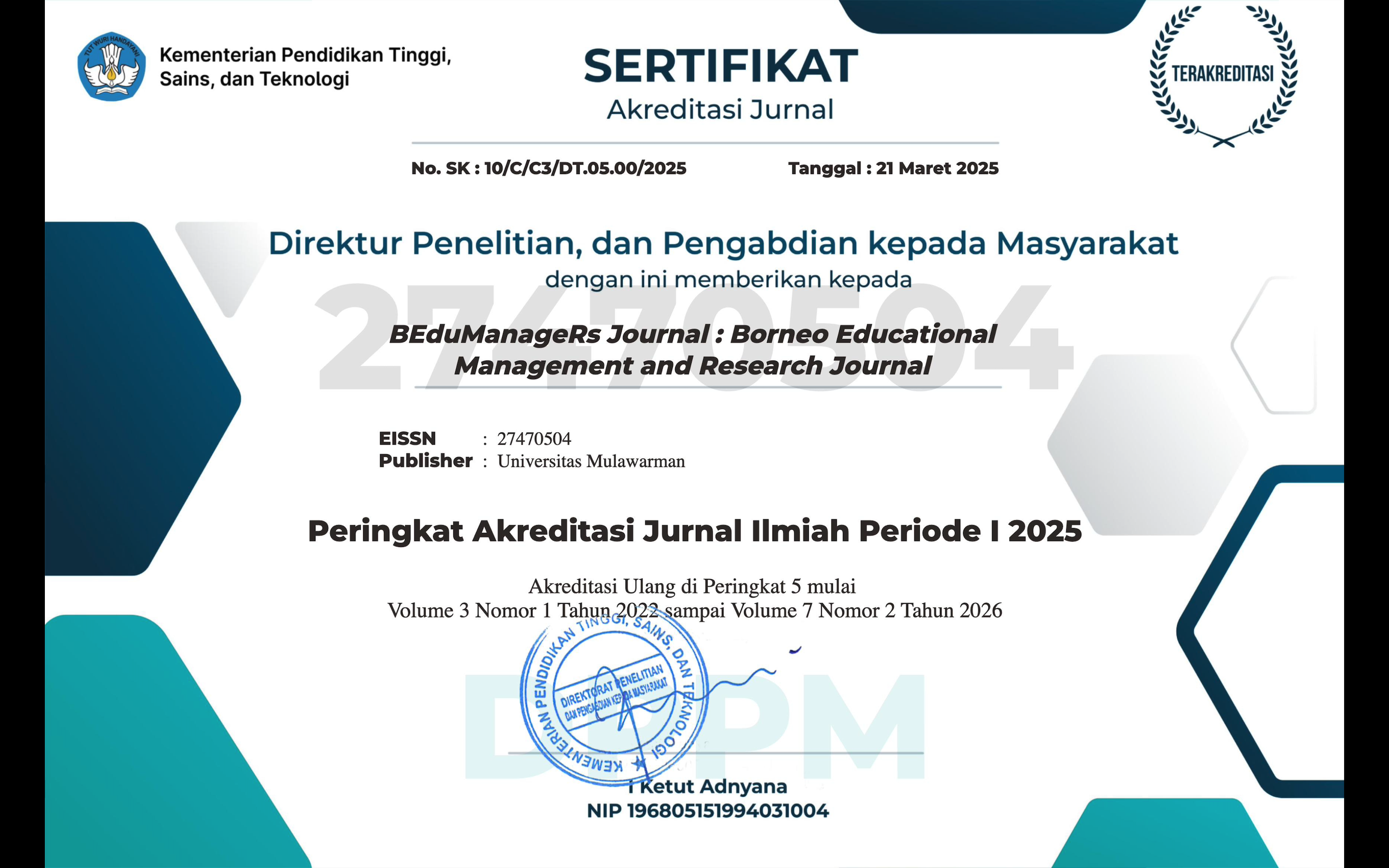EVALUASI PELAKSANAAN KEBIJAKAN BOSDA SMP UNTUK MENDUKUNG WAJIB BELAJAR 9 TAHUN
DOI:
https://doi.org/10.30872/bedu.v3i2.2238Keywords:
Evaluation, Policy, Bosda, 9-year Compulsory EducationAbstract
The objectives of this current study are: (1) To evaluate the policy of the School Activities and Budget planning (RKAS) and the formulation of the Budget Plan (RAB) for the Junior High Schools’ regional school operational assistance funds (BOSDA) to support the 9-year compulsory education; (2) Evaluating the implementation of the Junior High Schools’ BOSDA Program to Support the 9-year Compulsory Education; (3) Evaluating Junior High Schools’ BOSDA Fund Supervision policies to Support the 9-year Compulsory Education; (4) Knowing the Target Achievement of Junior High Schools’ BOSDA Program to Support the 9-year Compulsory Education; (5) Knowing the comparison of the results achieved in the objectives of the Junior High Schools’ BOSDA Program to Support the 9-year Compulsory Education; (6) Finding the SMP BOSDA formula to obtain the ideal amount of funding to support the 9-year compulsory education. This study used qualitative research methods emphasizing naturalistic results combined with quantitative research. The qualitative data were analyzed using data analysis techniques described by Miles and Huberman. The validity of the qualitative data is seen through the process of credibility, transferability, dependability, and conformability. While the Model of evaluation used in this study is the Discrepancy Evaluation Model (DEM) developed by Malcolm Provus.
The study concludes: (1) The policy of the RKAS and the RAB for the Junior High Schools’ BOSDA funds were quite effective to support the 9-year compulsory education; (2) The implementation of the Junior High Schools’ BOSDA program monitored by the BOSDA management team was quite effective to support the 9 year compulsory education; (3) Supervision of the implementation of the BOSDA program was ineffective to support the 9 year compulsory education as a result of ineffective internal supervisors, inspectorates and BPK as well as communities and school committees,; (4) The target of BOSDA policy is the achievement of National Education Standards (SNP), taking into account that school operating costs are determined by the number of students and some fixed cost components that do not depend on the number of students; (5) The goals achievement of BOSDA were appropriate with the BOSDA program, namely to free all-state students from fees for school operation; and (6) The formula of Junior High Schools’ BOSDA of 2,58 million rupiahs/student/year as minimum standards of service which so far is only Rp.1,580,000 to support the 9-year compulsory education could only be achieved when the BOSDA funds meet the needs of students, provides required school facilities, and improves schools’ infrastructures.
In this study the amount of 2,58 million rupiahs/student/year is found to be the ideal formula to meet the minimum standards of service to support the 9-year compulsory education at Junior High Schools level.











